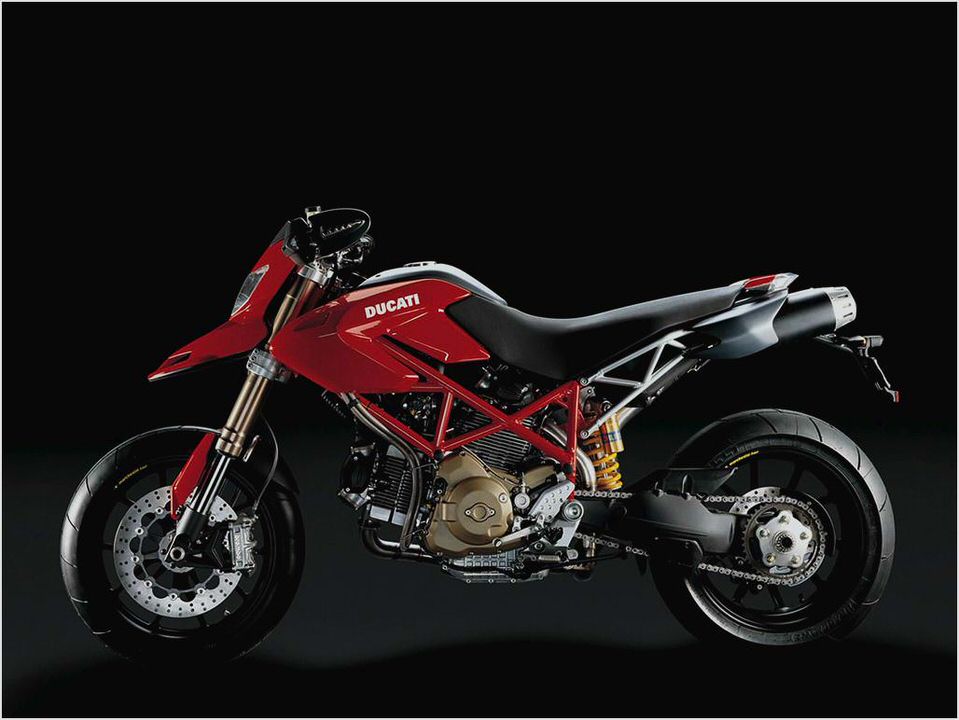
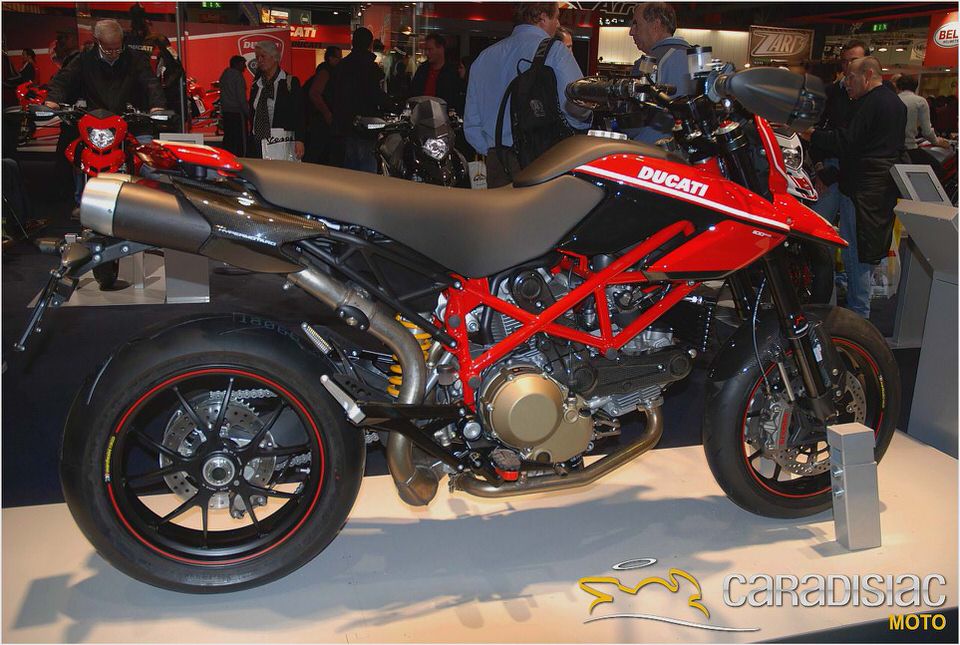
The dirt-styled hooligan roadster gets even better
It’s been a couple of years since we first experienced Ducati’s delightfully devilish Hypermotard 1100S, describing it in our review as “a wheelie-popping hooligan machine that can make even a saint naughty.”
After having ridden the revised 2010 EVO edition – with more power and less weight – Lucifer proves to be more insistent than ever.
The new Hypermotard’s EVO moniker is earned by the highly revised air-cooled V-Twin lump dubbed Evoluzione Desmodue (evolution, two-valve-per-cylinder engine). The same bore and stroke yield the same 1078cc displacement, but that’s where most of the similarities end.
Fuel and air are directed via a Siemens ECU and throttle body (that replace the previous Marelli components) before entering a completely new cylinder head. Altered intake ports feed a combustion chamber that uses a single spark plug per cylinder rather than the old DS (dual spark) head. The compression ratio is up from 10.7 to 11.3:1, and Ducati claims improved cooling and lubrication.
New, too, are the Hyper’s smaller engine cases. Together with Vacural vacuum-die-cast technology, Ducati has shaved about 7 lbs from the engine. Further weight reduction comes in the form of a lighter “848-style” flywheel, a magnesium alternator cover and lightweight rare-earth alternator magnets.
A slightly larger airbox enables freer breathing, and the exhaust of each cylinder now has its own lambda sensor on their way to the twin undertail mufflers. A new oil cooler offers 85% more radiating area.
The boys from Bologna claim 95 crankshaft horsepower at 7500 rpm, up five from the previous 90 hp at 7750. Peak torque of 76.7 ft-lbs arrives at 5750 rpm, a surprising 1000 revs later than the old DS mill. Ducati likes to note that the service intervals of its bikes have recently gone up to 7500 miles and that its bikes come with a two-year warranty.
Further enhancing the power-to-weight ratio is a lighter chassis. The rear part of the frame has small machined pieces for the suspension’s pick-up points replacing the previous large and heavy forged steel section. The Hypermotard’s total weight loss is said to be a considerable 15 lbs, resulting in a claimed dry weight of just 379 lbs.
The Hyper EVO benefits functionally by switchgear borrowed from Ducati’s Streetfighter stable-mate, as is the compact (but fully featured) gauge pack. The LCD display functions well enough, but its bar-graph tach isn’t easily readable. Fortunately, there are easily seen red shift lights if you somehow lose track of revs.
Stylistically, the EVO is a near match for the original HM. Trainspotter types will recognize the 2010 Hypers by their black fork tubes, as requested by potential and past customers.
The LCD display functions well enough, but its bar-graph tach isn’t easily readable.
As before, Hypermotard EVOs come in two flavors. The base model retails for the same $11,995. Instead of the previous upmarket S model, the EVO is joined by the higher-spec SP version.
Premium suspension, brakes and wheels and a smattering of carbon fiber force the MSRP to $14,495.
Saddling Up to Tortilla Flats
The host city for the EVO’s press launch was Scottsdale, Arizona, giving us some city-street surfing and freeway slogging before we hit the twisty road on our way to the cowboy-esque tourist trap of Tortilla Flats.
Swinging a leg over a Hypermotard 1100 might be the greatest impediment to ownership, especially for shorter riders. The base Hyper’s seat height of 33.3 inches is much more manageable than the SP’s 34.4 inches when feet need easy contact with the ground. Hands large and small are accommodated by easily adjustable clutch and front brake levers.
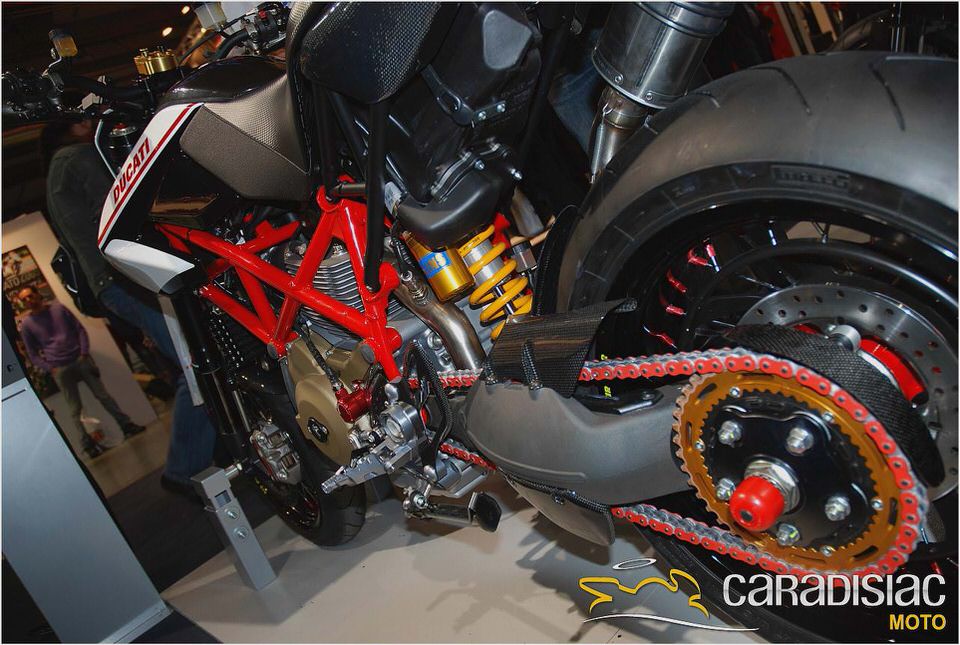
A wide dirtbike-like handlebar dictates the open and malleable riding position. Footpegs are placed forward and far from the seat, making the Hyper a good choice for NBA athletes. The one-piece seat was tolerable for the sub-60-minute sessions we rode, but we still aren’t keen on its upward slope from the low section at its forward end.
Although the dry-type clutch engages at the end of its travel, smooth launches are simple thanks to the responsive and torquey V-Twin. The Evoluzione Desmodue pulls strongly and cleanly from as low as 2000 rpm before really hitting its stride around 4500 revs when mechanical music erupts by the not-too-stifled exhaust. A gain of 5 hp up top is nice (5.5%), but we suspect the increase through the midrange is, percentage-wise, even bigger.
The EVO’s off-roadish ergos supply a commanding feeling to the rider, as does the tall perch. The HM retains its unique flip-out mirrors which are reasonably effective but are very wide. Hand guards supply a bit of wind protection while serving double duty as the mounts for the LED turnsignals.
Footpegs have serrated edges for max grip in slippery situations; removable rubber inserts keep vibration transmission to a minimum.
Relatively low gearing and a broad powerband supply plenty of squirt. Gears 1 to 3 are closely spaced for potent off-the-line acceleration, then a bit of a gap to 4th. Out of town, cruising speeds of 70-75 mph are quite tolerable despite the lack of wind protection.
Bump compliance is admirable thanks to 6.5 inches of travel in 50mm Marzocchi fork and 5.6 inches in the Sachs shock, both three-way adjustable.
The lighter flywheel makes the Desmodue quicker to rev and snappier in its responses. The redline seems to come more hastily, giving us the chance to run into the pleasingly soft rev limiter. Its throttle has a fairly short range, perhaps about one-third of a twist to its stop, so it’s just a flick of the wrist to achieve maximum acceleration.
Ducati claims 41 mpg for the Hypermotard, giving it a theoretical 135-mile range from its acutely small 3.3-gallon tank.
The Hypermotard really excels when pointed down a twisty road (even if it’s one filled with elderly snowbirds and asphalt-colored gravel). The odd Duc knifes into corners at the urging of its wide handlebar, although steering effort isn’t exactly light.
Both versions of the EVO utilize Brembo calipers and 305mm front discs, but there is a big difference in response. The base model uses two-piece front brake calipers that supply much less initial bite and longer lever travel than the wicked monoblocks on the SP. Replacing the pads with a more aggressive material would help.
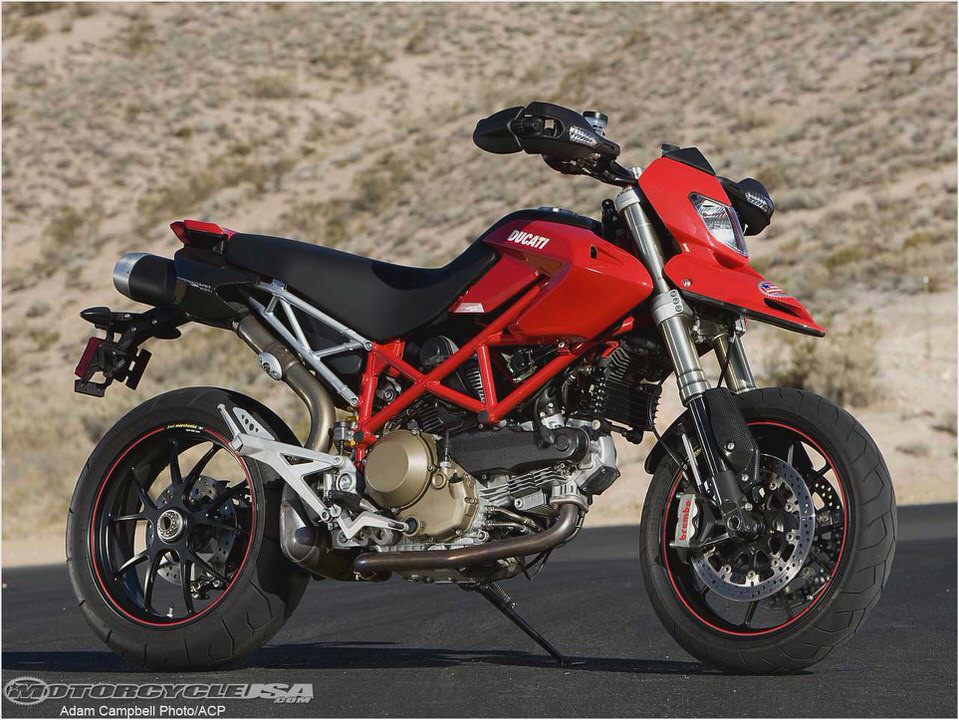
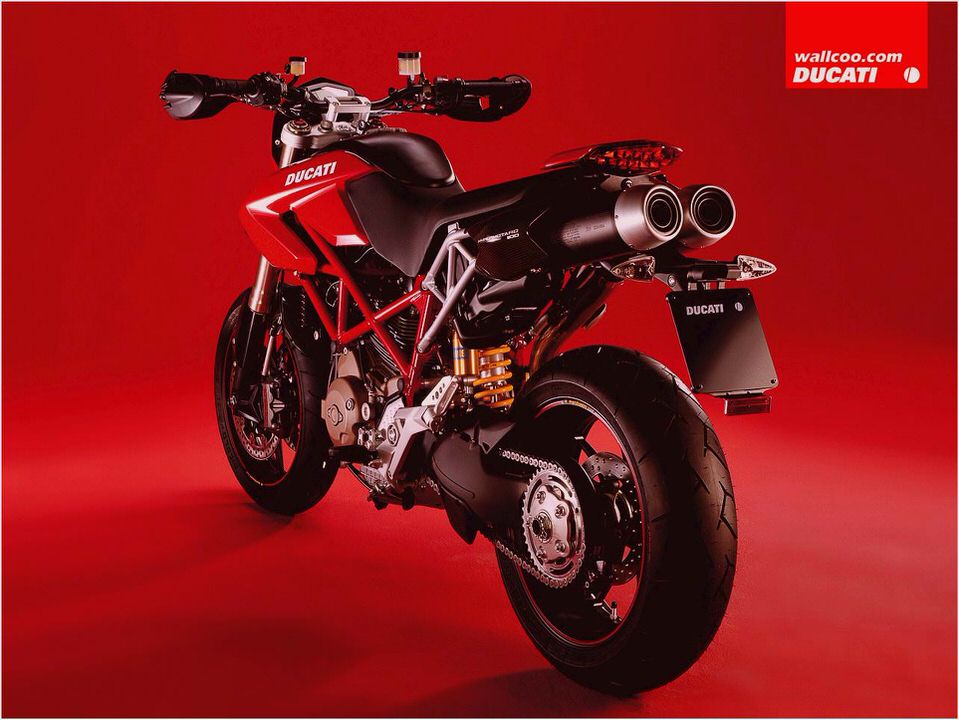
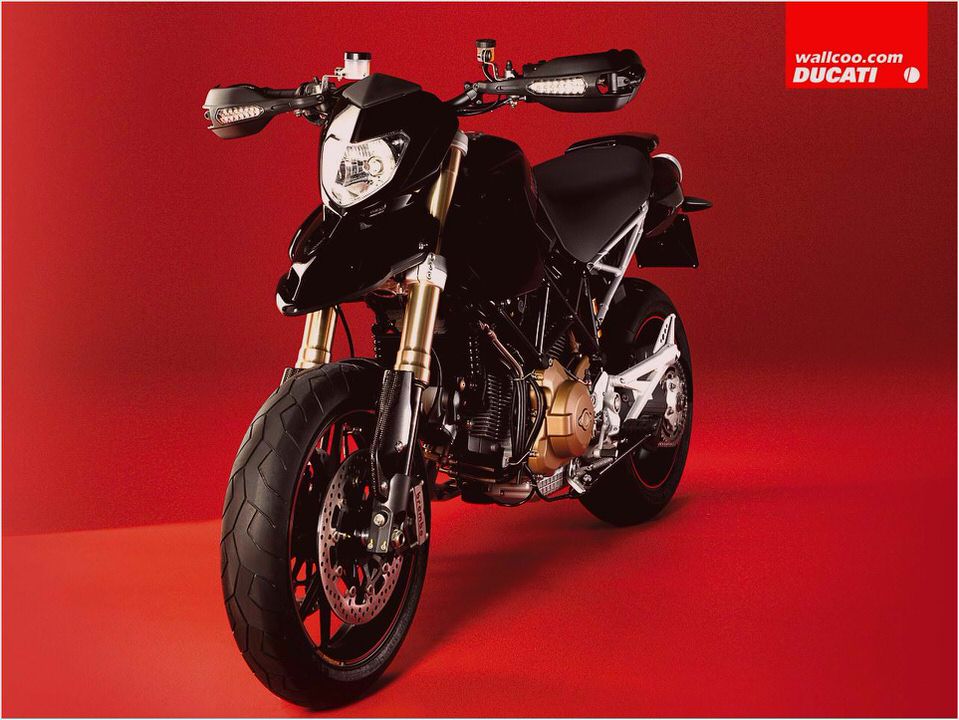
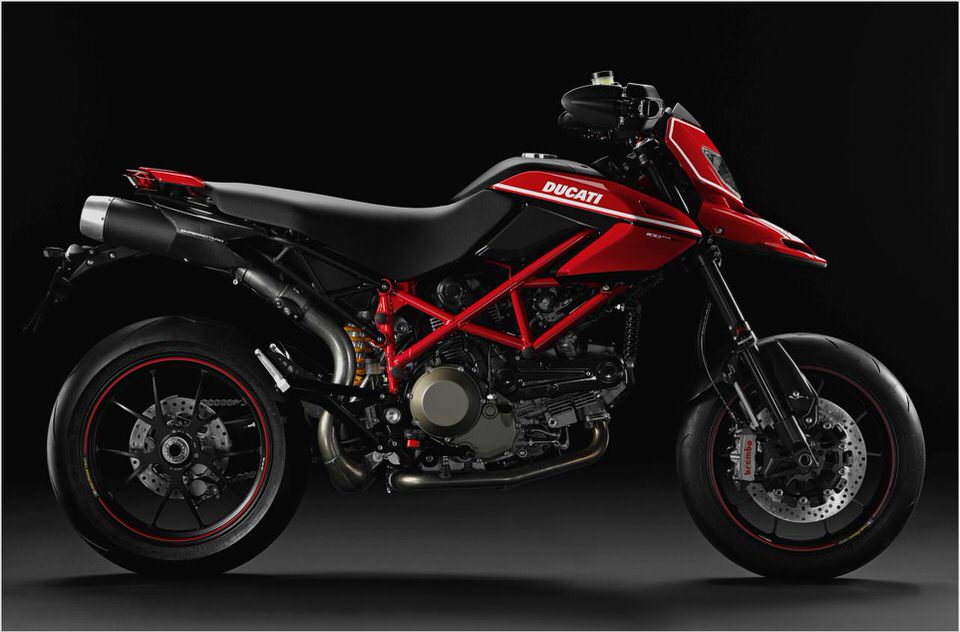
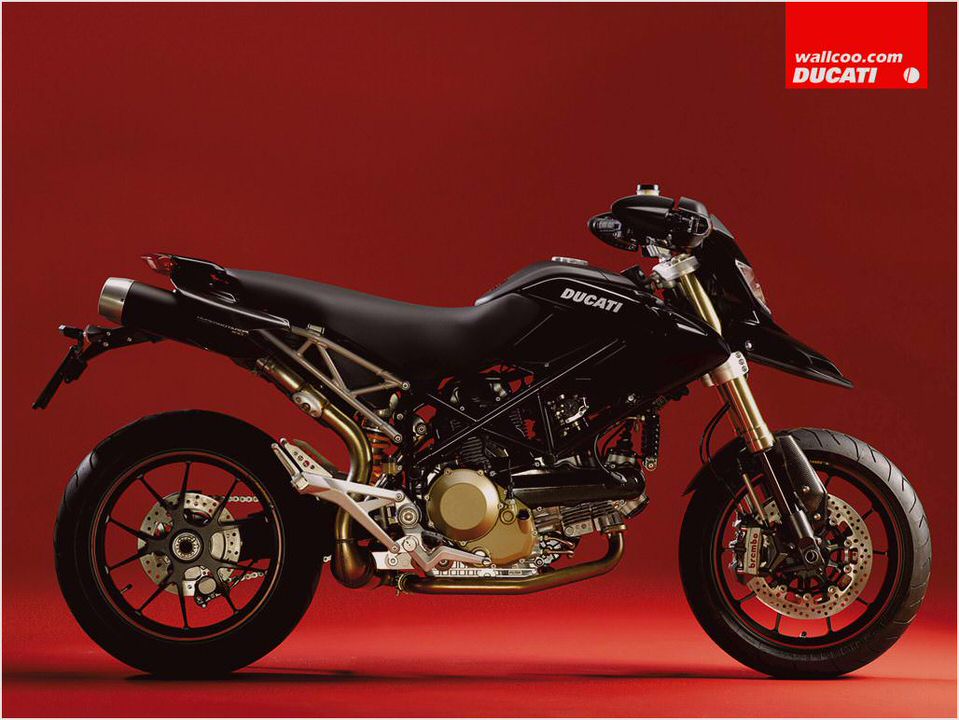

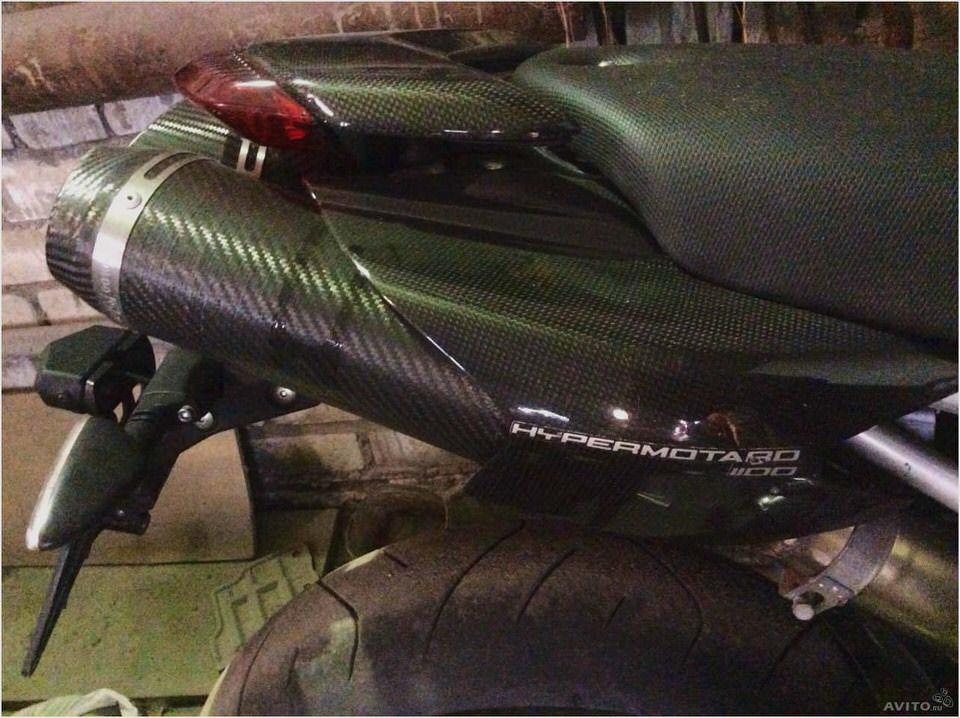
- Ducati Monster 1100 S Motorip.Com
- Ducati ST3 2004/5
- Ducati Multistrda 1000DS 1100 S MTS Review Canyon Chasers Motorcycle…
- Ducati MH900e – Wikipedia, the free encyclopedia
- 1995 Ducati M-900 Monster – review by Paul Peczon
